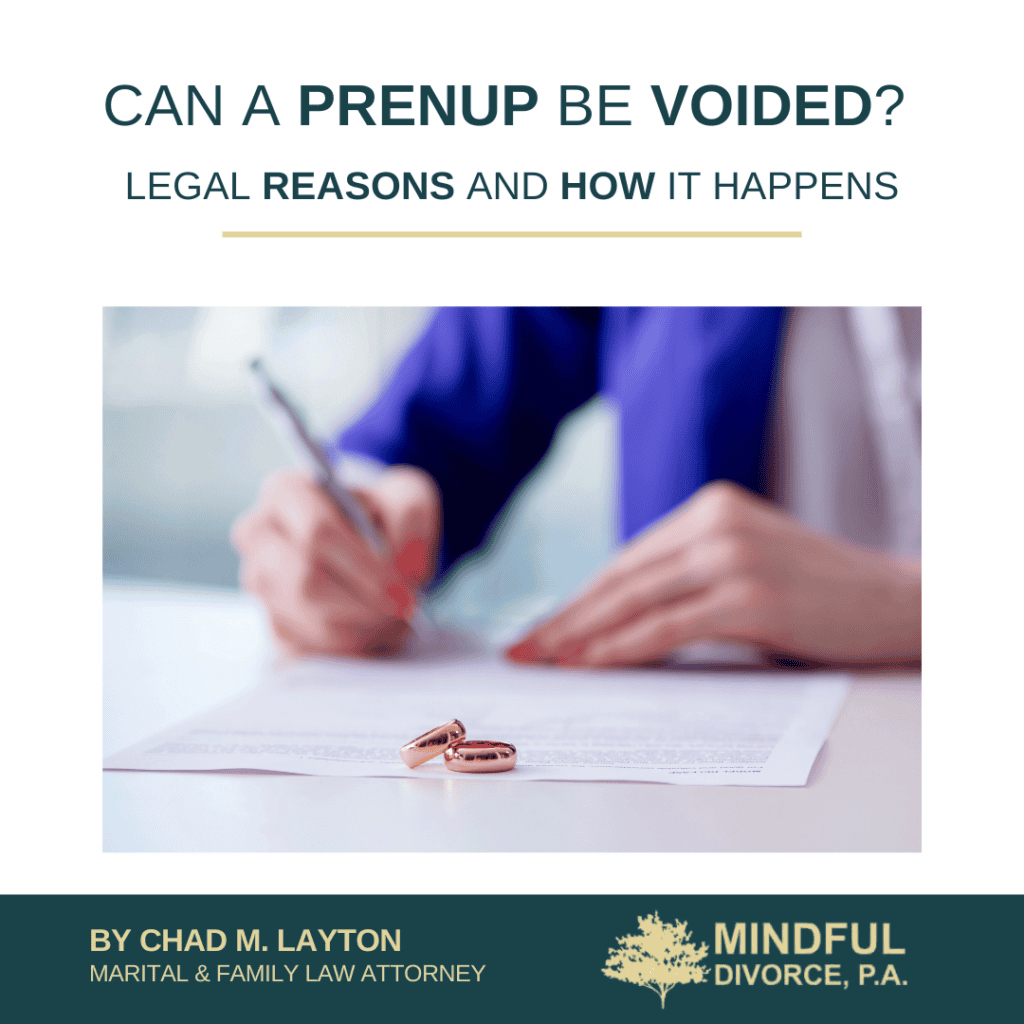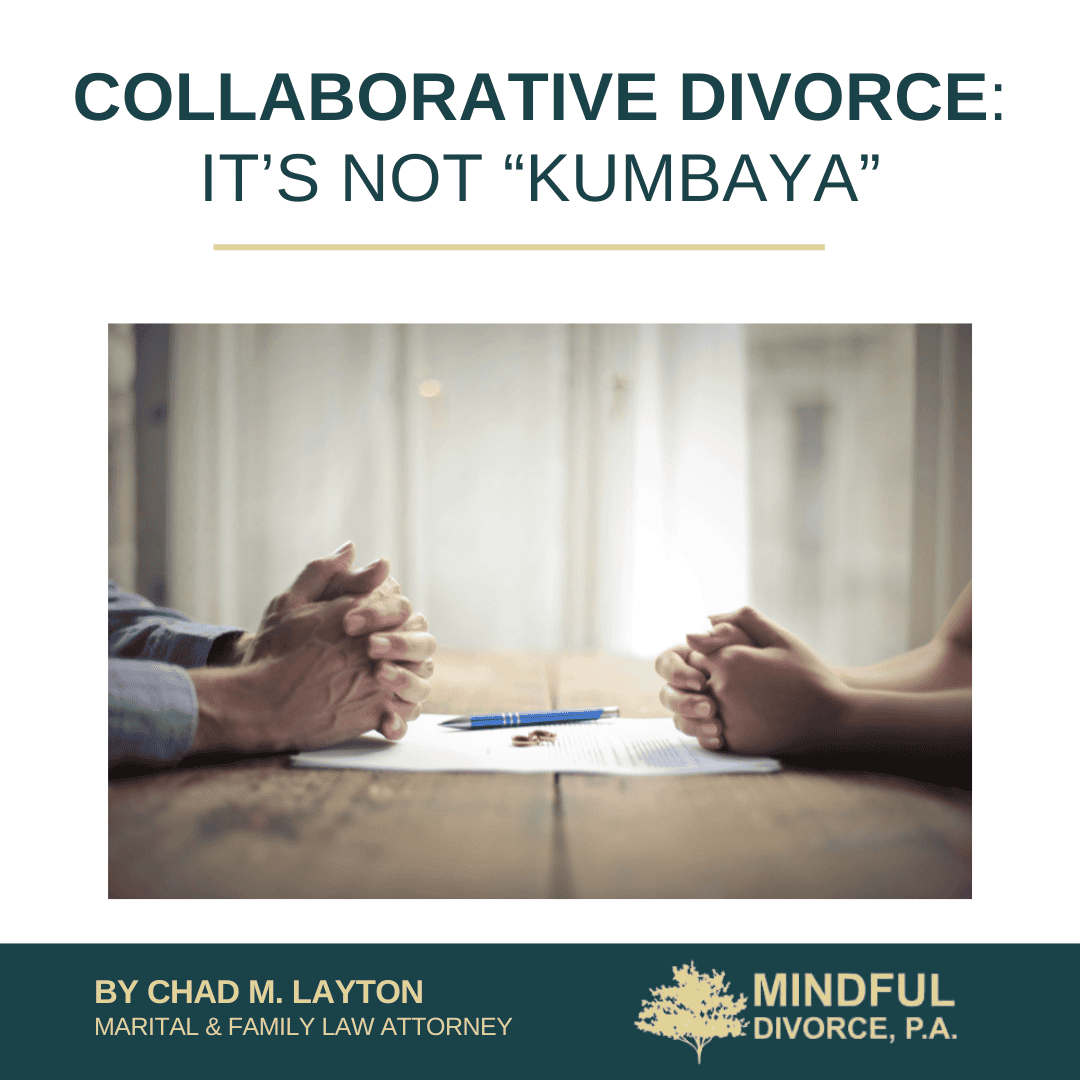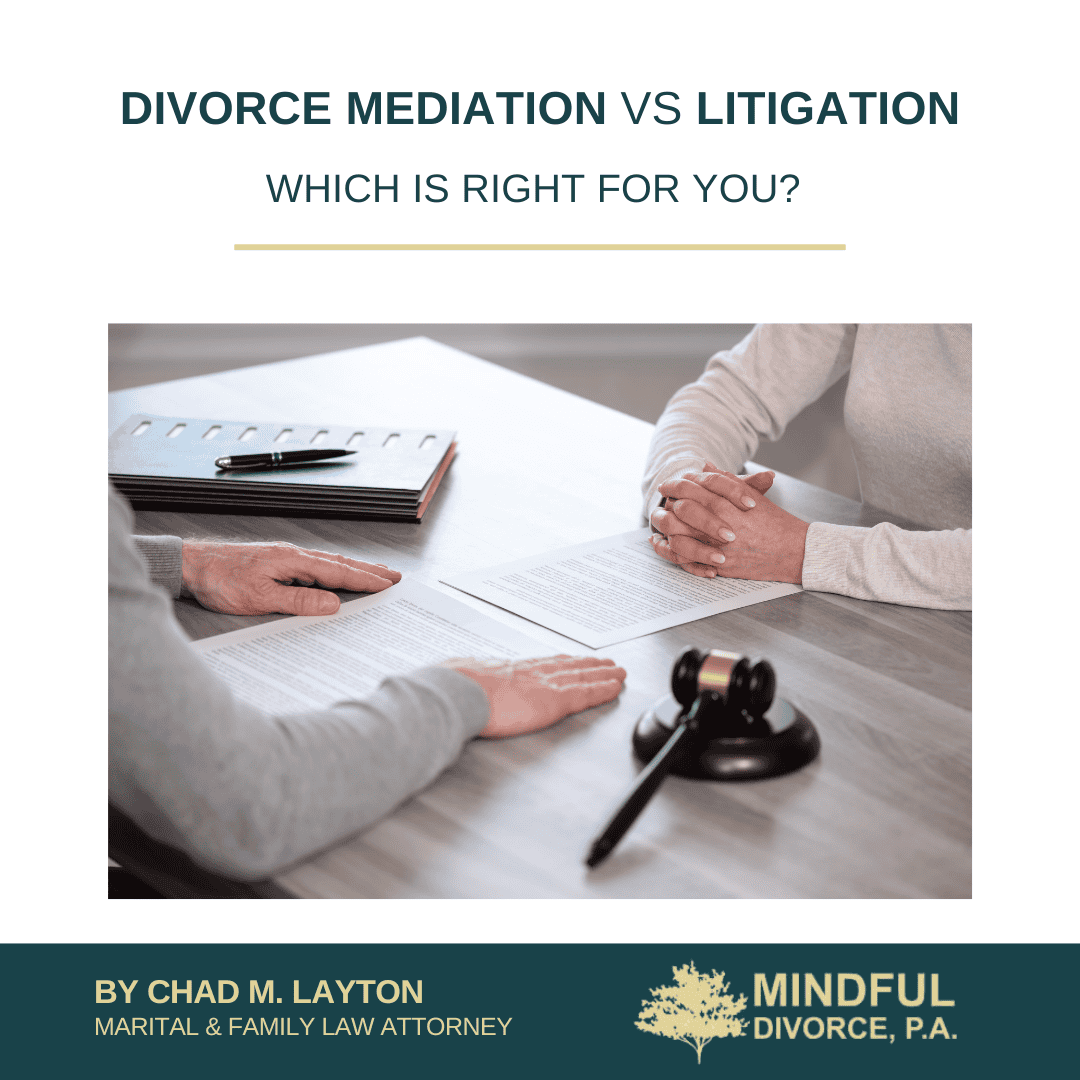
Do you think a prenup is an ironclad agreement? Think again. While a prenuptial agreement (prenup) can be an effective way to define financial boundaries and protect individual assets, it’s not immune to being challenged or voided. If you’re wondering how this could happen, you’re not alone. Let’s break down the common legal reasons a prenup might be invalidated in Florida and what you need to know to protect your rights.
At Mindful Divorce, P.A., we’ve guided many individuals through the complexities of prenuptial agreements. Understanding how and why these agreements can be voided is essential for safeguarding your interests. Let’s explore the scenarios where a prenup might not hold up in court.
Grounds for Voiding a Prenup in Florida
A well-drafted prenup can provide clarity and security, but either party can challenge it for several reasons. Below, we cover the most common grounds for voiding a prenuptial agreement.
Duress or Coercion
One of the most frequent reasons a prenup gets invalidated is duress or coercion. Simply put, this occurs when one party is forced or pressured into signing the agreement.
For example, imagine being presented with a prenup just days before your wedding and being told, “Sign this, or the wedding’s off.” That’s a classic sign of coercion. The court will consider whether the timing and circumstances left the signing party without a reasonable choice. Threats, manipulation, or any undue influence can void the agreement.
It’s crucial that both parties enter the agreement willingly and without pressure. If this isn’t the case, the prenup may not stand up in court.
Lack of Full Financial Disclosure
Transparency is the cornerstone of any prenuptial agreement. Before signing, both parties must fully disclose their financial situation—including assets, debts, income, and liabilities.
Hiding assets or failing to disclose a complete financial picture can lead to the prenup being voided. For instance, if one spouse owns a significant business or property but fails to include it in the agreement, the court may determine the document was signed under false pretenses.
This requirement ensures both parties make informed decisions. A judge could overturn the agreement if either side can prove that important financial details were intentionally withheld.
Unconscionability
Unconscionability refers to agreements that are shockingly unfair or one-sided. Courts in Florida may void a prenup if it heavily favors one spouse to the detriment of the other.
Consider this: a prenup that leaves one spouse entirely without support or access to shared marital funds while the other retains all assets might be considered unconscionable.
Florida courts will examine the fairness of the agreement both at the time it was signed and during enforcement. If a judge finds the terms to be excessively harsh or inequitable, they may strike down the prenup.
Improper Execution
A prenup isn’t valid unless it follows Florida’s legal requirements for execution. At a minimum, the agreement must:
- Be in writing (verbal agreements won’t hold up).
- Be signed by both parties.
- Meet any state-specific witnessing requirements.
If these steps aren’t followed, the agreement could be invalidated. For example, failing to have the document signed or properly witnessed could lead to legal challenges. It’s always wise to consult an attorney to ensure compliance with Florida law.
Violation of Public Policy or Law
Certain provisions in a prenup may violate Florida’s public policy or laws. For instance, clauses that waive child support or promote divorce may not be enforceable.
For example, a prenup that states one spouse will not be responsible for child support under any circumstances would likely be voided by the court. Similarly, agreements that unfairly limit a spouse’s rights during or after marriage may also be invalidated.
How a Prenup is Voided
Challenging a prenup in court is a multi-step process. Here’s how it typically unfolds:
- Consult an Attorney: The first step is to meet with an attorney who can assess the validity of the agreement and advise on potential challenges.
- File a Motion: A formal motion must be filed with the court to contest the prenup.
- Discovery Phase: During this phase, both parties gather and exchange evidence to support their claims.
- Court Proceedings: Finally, a judge will review the evidence and hear arguments from both sides before deciding whether to uphold or void the agreement.
Evidence plays a critical role in this process. For instance, emails, text messages, or witness testimony showing coercion or financial deception can strengthen a case for invalidating a prenup.
How to Protect Your Prenuptial Agreement in Florida
A solid prenuptial agreement can reduce the likelihood of drawn-out conflicts if a marriage ends. Although no contract is guaranteed to stand forever, several steps help create a document that courts are more inclined to respect.
Here are a few pointers:
- Exchange full financial details, including real estate, retirement accounts, and other assets or liabilities.
- Hire separate attorneys, ensuring each spouse gets neutral guidance.
- Sign the agreement weeks or months before the wedding to avoid any hint of last-minute pressure.
- Use clear, simple language that both spouses understand.
- Follow Florida’s formal signing requirements, like proper witness or notary procedures.
- Insert a severability section so that if one part is voided, the rest can remain valid.
That final suggestion helps preserve the prenup even if a single section is struck by a judge. Addressing these points from the start can save headaches and protect both partners’ interests.
Below is a short table illustrating potential missteps and ways to address them:
| Pitfall | Remedy |
| Last-minute signing just days before the wedding | Begin discussions and sign well in advance |
| Hidden accounts or debts | Reveal all financial data and double-check for accuracy |
| One spouse lacks legal counsel | Encourage separate lawyers or a clear waiver of representation |
| Overly one-sided terms | Adjust provisions so each spouse receives a fair outcome |
Focusing on thorough preparation can limit the chance that a court sets aside your prenup later. Next, we discuss how enforcement typically unfolds if divorce proceedings begin.
Enforcement of a Florida Prenuptial Agreement
Once a divorce filing occurs, either spouse can bring the prenuptial agreement forward for enforcement. The judge will then decide how much weight to give to its terms. The central question is whether the agreement meets Florida’s legal criteria, such as disclosure, voluntariness, and procedural correctness.
When courts uphold a prenup, it usually governs issues such as equitable distribution of property or whether alimony will be paid. Judges are typically inclined to respect the contract unless they find that one or more of the voiding factors apply. If the agreement meets the set thresholds, the court will typically turn its terms into binding orders related to property division or spousal support.
However, child-related matters (like support or custody) remain outside the scope of a prenup. Florida courts always reserve the right to modify any arrangement when children are involved, keeping their well-being a priority.
Need Help with a Prenuptial Agreement in Florida?
At Mindful Divorce, P.A., we aim to make prenuptial agreements as straightforward and stress-free as possible. With our fixed-fee services, you can focus on building your future without worrying about unpredictable legal costs.
Please contact us if you have questions about prenuptial agreements or need help drafting or reviewing one. Call us today at (561) 537-8227 or visit our Contact page to schedule a consultation. Protecting your peace of mind is our priority.



